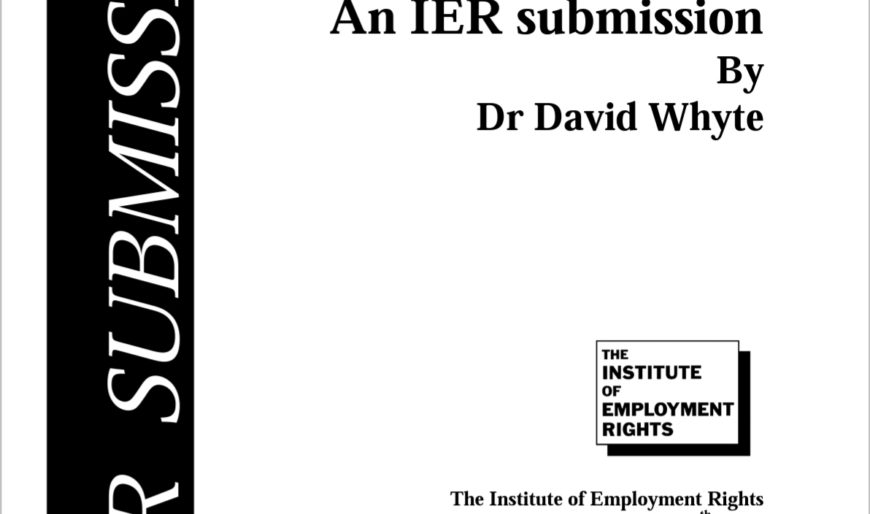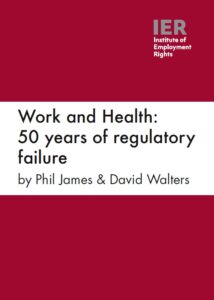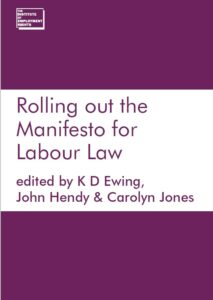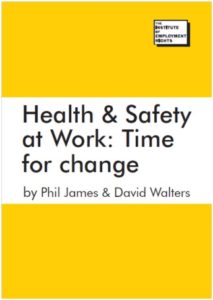Response to Inquiry into Deaths (Scotland) Bill Consultation
David Whyte responds to a public consultation broadly in favour of the proposals set out in the Draft Inquiry into Deaths (Scotland) Bill.

David Whyte responds to a public consultation on behalf of the Institute of Employment Rights, broadly in favour of the proposals set out in the Draft Inquiry into Deaths (Scotland) Bill.
Dr David Whyte has responded to a public consultation into the Draft Inquiry into Deaths (Scotland) Bill on behalf of the Institute of Employment Rights.
The Bill proposes to re-enact the Fatal Accidents and Sudden Deaths Inquiry (Scotland) Act 1976 with an extended scope to cover work-related deaths from health issues (including industrial disease and complaints resulting from exposure to substances in the workplace) as well as accidents. The Act will also be amended to allow the families of the deceased a more central role in investigations, improve the efficiency and transparency of the process, and refer some cases to specialist sheriff courts.
Dr Whyte agreed with these broad aims and also to proposals to place equal emphasis on identifying the circumstances surrounding the death and ensuring similar fatalities are prevented in the future, which may mean an investigation will be held even if the causes of death are well established. If the Bill is passed, a Sheriff will also have the power to both make and enforce recommendations to reduce risk in the workplace.
He commented: “The Bill addresses a major anomaly in practice. At the moment, for the purposes of criminal liability, workplace health and safety law does not distinguish between deaths caused by sudden injury and those caused by occupational ill health, or by exposures to harmful substances. Indeed, the Health and Safety Executive and local authority regulators have a remit which covers both deaths caused by sudden injury and occupational health cased deaths. It is clear that this anomaly has developed as matter of practice in Fatal Accident Inquiries, and that there is no logical, practical or legal reason for this anomaly.”
Dr Whyte noted that the Bill is currently largely consistent with Lord Cullen’s recommendations in the Review of Fatal Accident Inquiry Legislation; however, he criticised the government’s failure to include the peer’s suggestion to encourage wide dissemination of Sheriffs’ recommendations through a dedicated section of the Scottish Government’s website and the publication of an annual report. This, Dr Whyte argued, would improve transparency and accountability over workplace safety.
He also recommended that an extra amendment is made to the Bill to ensure that it is not only employees that are notified as to a pending investigation, but also trade unions representing workers at the same site.
Lastly, Dr Whyte warned of the criticism the Scottish Government is likely to receive from some quarters for putting forward such a progressive Bill.
“It is currently in vogue for politicians south of the border to invoke ‘red tape’ as a warning against any improvement in regulation … the acceding to this logic can place a heavy cost upon our system of justice,” he said.
“The minor inconvenience that some businesses may face are likely to be of small significance in comparison to the effectiveness and the transparency of the system of Fatal Accidents Inquiries.
“In sum, the long-term benefits to the justice system dwarf the short-term burdens that may fall on some individuals and organisations.”
Downloads
- Inquiry-into-death-scotland-Bill-2013.pdf - 186.48 KB








